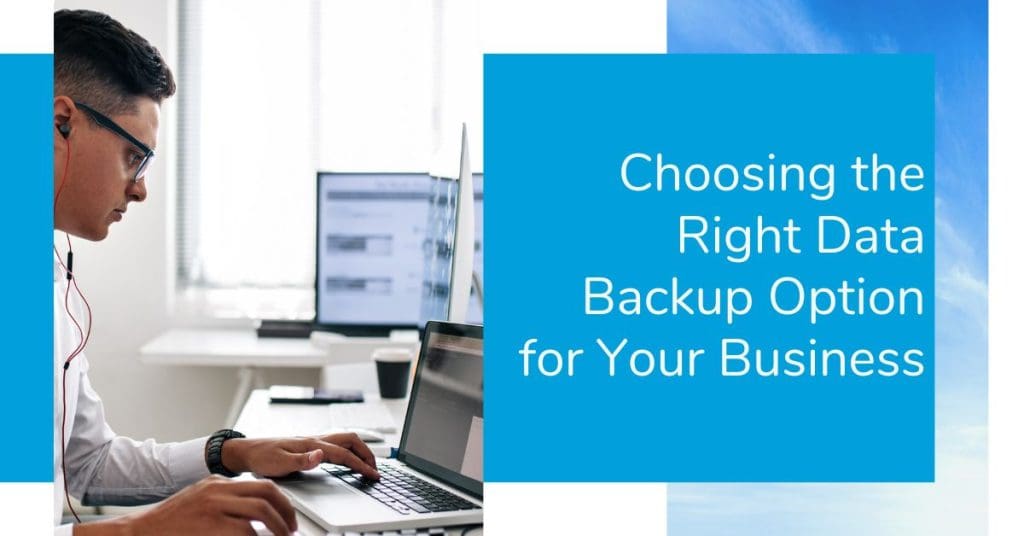Know Your Data Backup Options for Disaster Recovery Plan

Although data backup options can be complex and tedious to research, few IT subjects are as important. These options include endpoint backup and shared backup. We’ve broken them down in simple and easy-to-understand definitions so you can better choose which one is right for your business.
Most people understand the necessity of backing up data, whether you’ve dropped your phone in the toilet or left it on top of your car and driven off. Aside from personal loss of family photos and Farmville properties, you’ll deal with the devastating business loss of important contacts, meeting notes and voice recordings.
Imagine it’s not your phone that fell into the toilet or was crushed by a garbage truck, but your laptop, or your entire office of computers. That kind of devastating loss can put you out of business.
So how do you protect your data from the potential of disaster? Your first step in the right direction is learning the lingo. Here is a walkthrough of the most common backup options with pros and cons of each.
Endpoint Backup
The device you are using to create, access and save your data is considered an endpoint. These could be smartphones, tablets, laptops, desktops, even manufacturing machines and health system devices. They’re the last stage in the IT system.
These devices are made to periodically store their data in another location like an iCloud Drive for your contacts, photos, etc. on your iPhone.
The main downside of endpoint backups and devices is that you can’t access the data from one device on another. They are backed up separately and it’s up to the user to set up and manage backups.
Shared System Backups
Shared systems are more of a company-focused backup solution. All files are stored in a central location and data and work is accessible to anyone with permission. Shared systems are great for boosting productivity — it’s easier to collaborate on the same documents and it removes the need for constant email communication. They’re also great when it comes to disaster recovery.
Cloud or Local Backups?
Both data backup options can be managed via the cloud, local servers or both.
A cloud backup is a blanket term that covers backups that aren’t onsite of your internal network. The iCloud drive is an example of a cloud backup, but backing up your local server daily to a sister location in Chicago would also be considered a cloud backup.
A local backup is when your computer backs up to an external plugged-in hard drive. It would be the same idea if your office computers backed up to an onsite server.
Current disaster recovery solutions are a hybrid of local and cloud backups. Cloud backups can slow down productivity because they’re downloading data constantly throughout the day. The loss of speed is most noticeable in larger applications like Adobe Photoshop or AutoCAD. This is where super fast local servers come in. They are almost 10 times faster than cloud backups. However,because they are onsite, if a flood or storm destroys any of your hardware, you’ll want to be sure your data is also stored elsewhere.
What You Should Know About Your Company When Choosing Data Backup Options
When choosing a backup solution, you should know some key things about your organization that will help you make the right decision.
- The size of your team
- The types of files you need to backup
- If employees are centrally located or dispersed geographically
- How long you need to store backups and the compliance regulations you need to meet
- How many endpoints you have to manage and the types of devices
This information can affect which option you choose — if you have just 10 employees who work remotely around the country, a cloud backup solution will likely be all you need because you don’t have a physical centralized location.
At SkyTerra, we won’t leave you to figure out this decision on your own. We have extended knowledge and experience with data recovery and backup solutions. We will walk you through choosing a data backup option that works for you and your business. Book a meeting with us today to discuss your data backup options.
